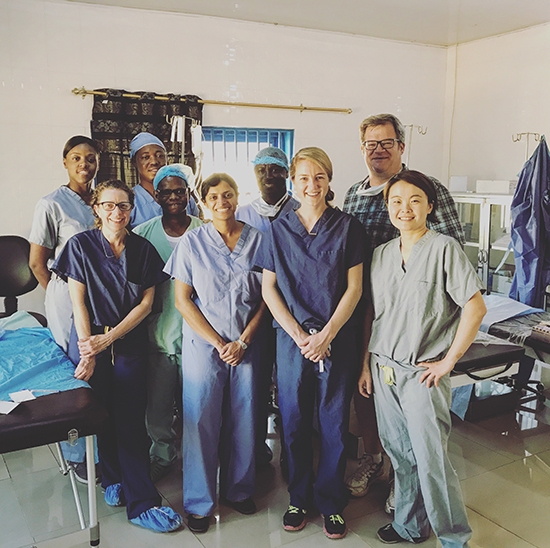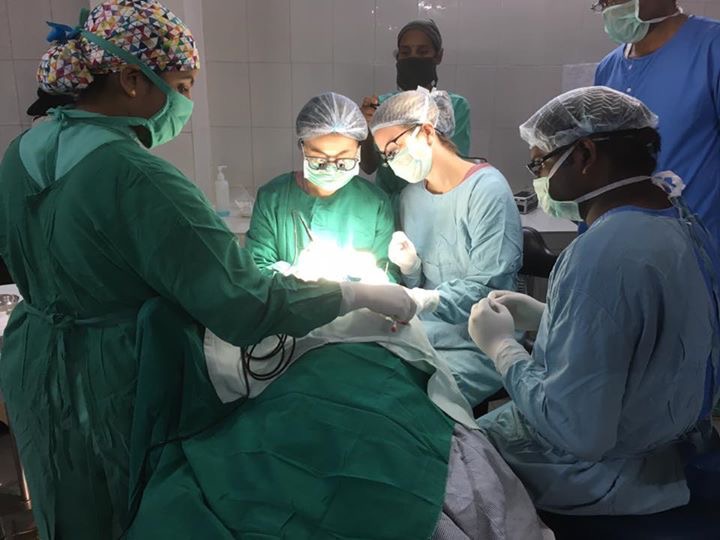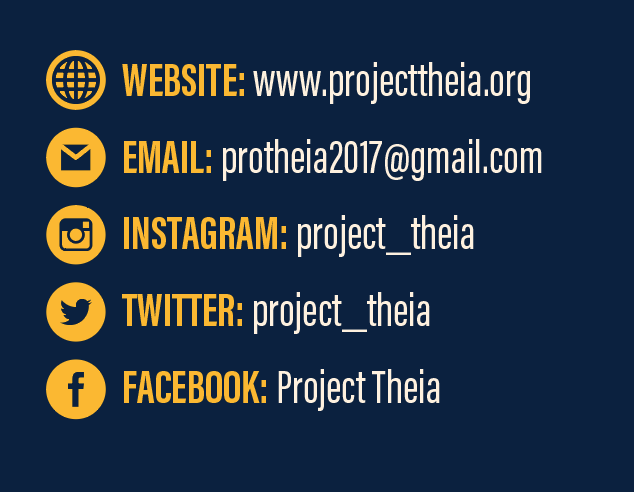When we met 18 months ago, we had no idea our common interest in global medicine would lead to the creation of a nonprofit organization. We both had experience with global medicine and bonded over the impact these experiences had on us and our desire to make this a part of our future careers. We are both oculoplastic surgeons, and, in the course of our discussions, we realized that there were few, if any, nonprofit organizations aimed at delivering oculoplastic care in developing countries. This is where the idea for Project Theia (Theia being the Greek goddess of vision and light) began.
ABOUT PROJECT THEIA
Project Theia is a 501(c)(3) registered nonprofit organization that provides ophthalmic care and education in developing countries. In our first year of operating Project Theia, we have established partnerships with organizations in Ghana, India, and St. Lucia. We have visited each of these locations to provide clinical and surgical care, education, and resources.

Figure 1 | Project Theia Cofounders Dr. Yu (left) and Dr. Duncan (right). Camping headlights proved useful during power outage at the Friend’s Eye Clinic in Kumasi, Ghana.

Figure 2 | Discussion of clinical cases in Tamale, Ghana. Pictured clockwise are Drs. Duncan, Wanye, Richards, Raju, and Yu and surgical nurse Kathy Sedory.
Our aim is to develop long-standing relationships with our partner organizations in order to support them in creating high-quality sustainable health care for their patients. While visiting these developing countries, we provide clinical and surgical care and also take the opportunity to think about solutions for unmet needs. Our long-term goal is to deliver tools and education so that the local ophthalmologists and surgeons can remain sustainable in our absence, thereby reaching a much greater number of patients.
The key to promoting high-quality sustainable health care is identifying the unique needs of each location we visit. For example, our partners in Ghana travel to remote locations to reach people who are unable to visit hospitals and clinics; therefore, they require mobile equipment and anesthesia, which has been a challenge for them. We are in the process of developing a specific program that would give them the necessary resources to deliver better care.

Figure 3 | The surgical team in Tamale, Ghana. Front row from right to left: Kathy Sedory, Luciano, Dr. Raju, Dr. Duncan, and Dr. Yu. Back row from right to left: Dr. Richards, Ami, Dr. Wanye, and Ted Wiegand (videographer).

Figure 4 | Drs. Yu and Duncan operating in Rajahmundry, India, at the Goutami Eye Clinic.
WHY PARTICIPATE IN GLOBAL MEDICINE?
We all go into medicine to help others. Unfortunately, health care changes have forced us to spend more time on documentation and less time with our patients. This can be frustrating and contributes to the increasing rate of physician burnout in the United States. When providing care in a global setting, you reach patients who are the most in need of your skills and often the most grateful. You are able to make a major impact on the lives of others. We find this interaction to be the purest form of health care, reminding us of why we chose to go into medicine. When returning from these trips, we are always reenergized with a greater appreciation and dedication to our day-to-day lives as ophthalmologists in the United States.
We also believe that practicing global medicine makes us better clinicians and surgeons. The available resources, conditions, and practices in each country vary considerably. Global medicine is all about adaptability. Learning to work in a new environment in conditions you are unfamiliar with makes you more versatile and forces you to become more creative. Although you may think the purpose of your trip is to teach local health care providers, you inevitably learn a lot from those who are able to provide care to so many with so little. You, in turn, learn new skills that may be beneficial to your patients at home.

Figure 5 | Drs. Duncan and Yu reconstructing an anophthalmic socket due to trauma while Dr. Richards looks on.
THE FUTURE OF PROJECT THEIA
We are very proud of what we have accomplished in our first year and hope to carry this momentum into the future. We will continue our relationships with our current partner organizations in Ghana, India, and St. Lucia and have plans to provide continued clinical care, education, and resources specific to each of these locations. We are also reaching out to new partner organizations globally where we feel we can make the biggest impact. Our long-term strategies will be focused on providing tools, education, and delivery of care for our partner organizations. These strategies will include various solutions that may involve simple devices, software platforms, and telemedicine to improve the work of our local partners.
For more information or to find out how you can get involved/support Project Theia, visit our website or contact us using the information below.





